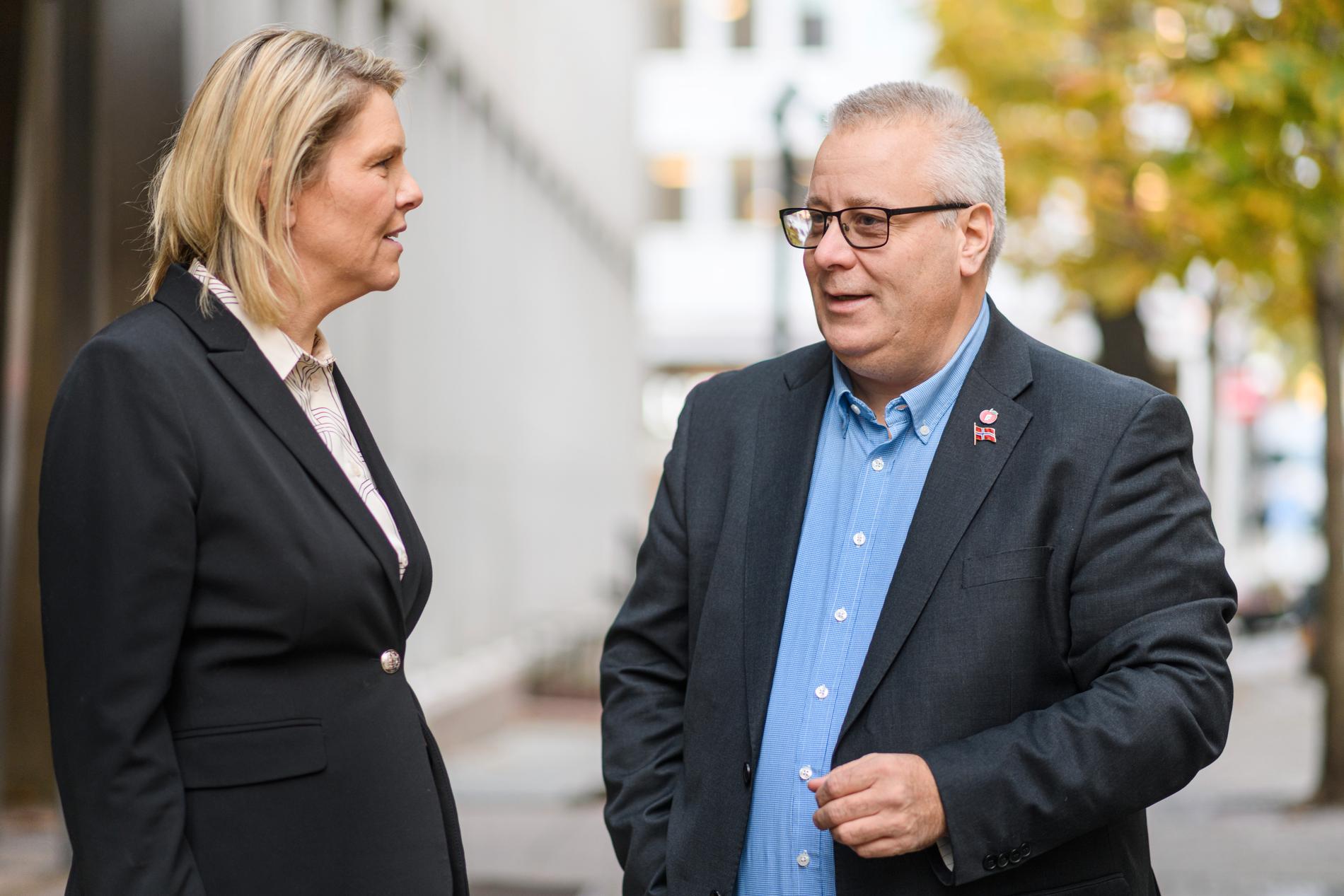“Norway is lagging behind when it comes to using new medicines, especially in the field of cancer and for rare diseases. With today’s system, sick people die while waiting, and many live in great pain completely unnecessarily. To improve the situation, a number of changes are needed in the system for approval of new medicines in Norway, and consideration for patients must be emphasized much higher.
Norway has one of the world’s best healthcare systems, but when it comes to making new medicines and treatments available and financing, we lag behind. Several analyzes that examine the availability of new medicines show that Norway uses new medicines later than other countries. A report performed by
IQVIA on behalf of the Pharmaceutical Industry (LMI) in April 2021 shows that Norwegian patients wait longer for new medicines than patients in other countries. Norway is in seventh place out of a total of 10 comparable countries in Europe for availability of medicines. It is not good enough, and those affected are the patients.
Greater professionalism in the assessments
The proponents believe it is unfortunate that the Decision Forum consists of only the four managing directors of the health trusts and an observer from the user committees. There is little listening to professionals and users, and those who make the decisions are the same ones who have the overall financial
responsibility for the regional health authorities. The proponents believe that patient groups and professionals should to a much greater extent be listened to and participate in the decisions about new medicines in Norway.
approved.
Among the countries PROBA looked at in the evaluation of New Methods, it was only in Norway that those with the overall financial responsibility were the same ones who decide which drugs to introduce.
The proponents believe that one must look at the Danish approval model, which consists of three parts: the council, the professional committees and the secretariat. The council is the body that decides on the recommendations, and consists of 16 members and four observers. The council consists mainly of hospital doctors, but also of, among others
a health economist, pharmacists and patient representatives. The professional committee is appointed and must have top expertise in the area, and with at least one patient representative.
Treatment time
Decision-making forums take far too long to approve or reject medicines that have already undergone the rigorous and comprehensive approval process of the European Medicines Agency. Norwegian patients are affected by this. The IQVIA report shows that there are especially drugs for rare diseases and new cancer drugs that are not available to Norwegian patients.
In Denmark it takes an average of 176 days before drugs are introduced, in Norway it takes 414 days. Time is a resource many with serious diagnoses do not have. For some cancers, Norway is now the country in Western Europe with the worst access to new medicines for ordinary people. People with money can buy medicines and treatment, while ordinary people have to resort to fundraising campaigns or be left without treatment.
We need a system that ensures access to medicines faster. Norway should aim to have among the lowest treatment times for approving new treatments and medicines in Europe.
The proponents believe that the requirement that all new drugs must be methodically evaluated and go through the system for new methods is an obstacle to rapid access in Norway. Statistics from New Methods show that there are currently 32 ongoing method evaluations at the Norwegian Medicines Agency and as many as 235 method evaluations that are in line and have not been started.
When one sees this in light of the reports that show that access to new drugs is
delayed in Norway compared with other countries, and that the Norwegian Medicines Agency itself has acknowledged resource challenges.
More consideration for patients – less consideration for price.
In Norway, price is highly emphasized during the approval process of new medicines. The costs are overestimated, and the health benefits for patients are underestimated. It is unacceptable that other European countries see the benefit of offering medicines to their people, while the same medicines are
rejected by the Norwegian health authorities on the grounds that they are not cost-effective.
The Norwegian authorities’ willingness to pay for a quality-adjusted life year, which is used in assessments of whether a drug is cost-effective, must be increased considerably and be on a par with comparable countries.
Today, the Norwegian willingness to pay for a quality-adjusted life year is not explicitly known, but we know that reference will be made to the Magnussen staircase, which was developed by the Magnussen group, in connection with the work on the Prioritization Report.
The amounts used there were not subject to a thorough assessment because they were to be indicative only. However, there is good reason to believe that they are used as concrete threshold values more than for guidance. The amounts used were also set in 2015, and have since not been price index adjusted. In practice, this means that the Norwegian willingness to pay decreases with each passing year, at the same time as prices increase because the treatment methods that are developed are constantly improving.
effect.
Transparency
The decisions of the Decision Forum are today largely exempt from publicity. There is thus no opportunity for patients, relatives, professionals, politicians or the media to assess their decisions. It is a major challenge for the legitimacy of the Norwegian approval system that there is not full transparency in the reasons, so that we can question the decisions. The decisions are also final. There is no possibility of appeal, unlike other areas of public administration.
Full public access should be given to the reasons for the Decision Forum. In addition, an appeal body must be set up to evaluate the rejection cases.
Against this background, the following is promoted:
I. The Storting asks the Government to reorganize the Decision Forum for new methods according to the same model used in Denmark.
II. The Storting asks the Government to remove the requirement in the Prioritization Report that all new medicines must be methodically evaluated.
III. The Storting asks the government to ensure that the health authorities’ willingness to pay for a quality-adjusted life year is increased to be at the same level as comparable countries in Europe.
IV. The Storting asks the Government to ensure full public access to the justifications The decision-making forum for new methods is reached, at the same time as the unit prices of medicines are kept confidential.
V. The Storting asks the Government to establish an appeal body for the Decision Forum for new methods, which evaluates the rejection cases.
WE. The Storting asks the government to follow the recommendation from Proba to review
the exemption scheme so that it is in line with the intention in the Prioritization Report, and ensures exceptions until medicines have been introduced in the health service.
VII. The Storting asks the government to establish a scheme for quality assurance of
the method evaluations of the Norwegian Medicines Agency to ensure legitimacy of the decisions made in the Decision Forum.
–


